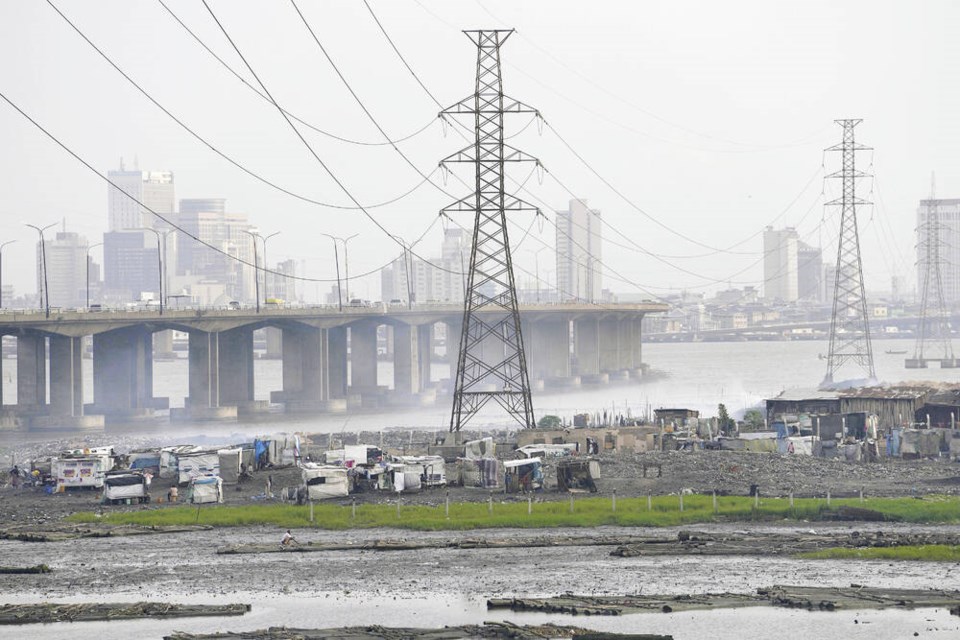More than a decade ago, a group of Earth system scientists developed the concept of planetary boundaries.
They identified a set of a dozen or so Earth systems and proposed thresholds for each system beyond which it was likely that the system’s stability and resilience would be compromised.
“These boundaries,” they wrote, “define the safe operating space for humanity with respect to the Earth system.”
One of those Earth systems, of course, is climate change. Two weeks ago, I referred to the work of a team of researchers, led by Timothy Lenton at the University of Exeter in the U.K., examining the “human climate niche” — in effect, the “safe operating space” for humans when it comes to temperature.
Neither we nor our domestic animals or crops do well beyond a mean annual temperature of 29 C, known as “hot exposure.”
Lenton and his colleagues looked at our current pathway, which sees average global temperatures increased by 2.7 degrees C by the turn of the century.
When combined with expected population growth, they found, the number of people outside the niche rises to about two billion people in 2030 and 3.7 billion people — 40 per cent of the entire population — by 2090.
But importantly, they also looked at which countries and people would be most affected. With global warming of 2.7 degrees C by the turn of the century, India would have more than 600 million people experiencing “hot exposure,” while Nigeria would be second with more than 300 million exposed. Then come Indonesia (100 million exposed), the Philippines and Pakistan (both with more than 80 million exposed).
Some smaller countries — Burkina Faso, Mali, Aruba, United Arab Emirates, Bahrain and Benin are the top six — will experience “hot exposure” conditions across almost their entire land areas.
Importantly, Lenton’s team note that for the most part, those most affected come from poorer nations that have less than average greenhouse gas emissions. The UAE and Bahrain are obvious exceptions.
In other words, the victims of climate change are both less responsible for the problem and less likely to have the resources to cope with it.
“Overall,” the researchers write, “our results illustrate the huge potential human cost and the great inequity of climate change.”
However, climate change is but one of a number of Earth systems — the natural systems that provide our life support — that humanity is stressing.
And as with climate change, transgression of any planetary boundary can be expected to have inequitable impacts, as the benefits and costs of ecosystem disruption are not evenly distributed.
Wealthy countries and people have ecological footprints far higher than those of middle- and low-income countries and people.
That has been the case for decades, indeed centuries, meaning that these countries and people are responsible for most of the cumulative damage to the Earth.
So both historically and in present times, we bear a collective responsibility to act first and go furthest in reducing our impact on the Earth’s life-support systems.
This current and historic inequity is the basis for thinking about not just a safe operating space for humanity, but one that is also just.
This is a step presaged by Kate Raworth in her “doughnut economy” model, where she referred to a “safe and just operating space” for humanity.
This led her to propose that a doughnut economy — one that meets the social needs of everyone on Earth while not transgressing planetary boundaries — would need to be both regenerative and distributive.
That is to say, we would need economic activity that actually regenerates rather than depletes natural systems, while distributing the economic benefits more fairly.
In other words, we cannot separate what, more than 40 years ago, I called the two fundamental principles of public health: ecological sanity and social justice.
This of course raises the question what is a safe and just space, and how does the introduction of a justice perspective shift the planetary boundaries?
Now, in an article published in Nature in late May, a team led by Johan Rockstrom, one of the leading researchers on Earth systems and planetary boundaries, has looked at and sought to answer that question.
Next week, I will review and discuss their work.
Dr. Trevor Hancock is a retired professor and senior scholar at the University of Victoria’s School of Public Health and Social Policy
>>> To comment on this article, write a letter to the editor: [email protected]



